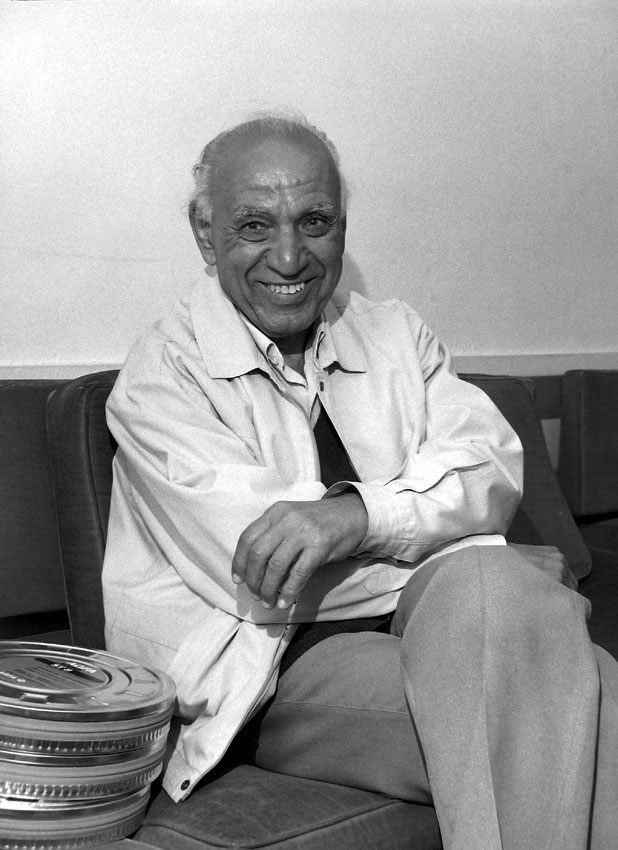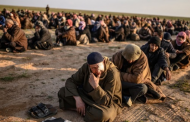
By : Emma Khalil
Salah Abu Seif (May 10, 1915 – June 23, 1996) ..
One of the most famous Egyptian film directors, and is considered to be the godfather of realist cinema.
Growing up in a poor family in the notorious neighborhood of Boulaq , his extensive reading in cinema and different fields and then working as a film editor for ten years were the most important factors to push him to depicts the life of the Egyptian struggling and brings their life details to light and helping him to made a great legacy of films which dissecting the Egyptian society and the class struggle.
He tapped upon the lives of the bourgeoisie and the slow slide towards corruption which is quite believably depicted in his films. Also his films include several key elements that depicted the impermeable lives of the bourgeoisie and the variation between different classes and also it is psychological impact on individuals.
So he deserved to be ( the godfather of realism) in Egyptian cinema and film making. And that is why his films are still being re-interpreted with the relevance of today’s political and social situation which are extremely palpable in Egypt.
In many of the 41 films Abu seif directed we can see his depth in character development . He was interested in reflecting the inner struggles of the characters rather than the social pressures that affect a person’s behavior. That is why his films are believable and his art is genuine.
Osta Hassan (Foreman Hassan) in this film He managed to emphasize the class struggle through the film’s editing, such by focusing on a refrigerator or a lamp from a poor house and in the next frame focusing on the same objects in a rich home. It is considered one of the most important films in Egyptian cinema.
El-Qahera 30 (Cairo 30) and El-Zoga El-Thanya (The Second Wife) in these films Abou seif substantiate and embody that sexuality is directly linked with the power and class struggle and how the oppressing power preys on the oppressed through sexual domination and how the oppressed lose their human dignity at the sight of money. In these films he used some archetypes like the seductress or the oppressive mayor and we can find that the characters vary and do not stick to a certain mold.
These films are considered a great and valuable legacy in the Egyptian cinema and film making.
So we can see how Abu seif was a master of looking into the scene details and how his films reflected the breadth of him.
Abou Seif started his career in Studio Misr first as an accountant and then as a film editor for ten years. He also directed several short documentary films, including one about traffic in Alexandria and another one about the noise of Cairo. then his first long film came in 1946 (Dayman Fi Qalby ) (Always in My Heart).
His film (bidaya wa nihaya) (1960) was the first adaptation for a novel of Nobel Prize winner (Naguib Mahfouz).
Also he brought Egyptian literature onto the screen, and he can be credited with bringing the famous novelists like (Naguib Mahfouz and Ihsan Abdel Koudous) to the film industry. It is also known that he contributed in writting his screenplays because he firmly believed that the script is the main component of a film.
He didn’t’t contribute in shaping Egypt’s cinema only but he is considered the father of Egyptian realism in cinema and he had his special effect in many egyptian cinema filmmakers that he had taught like ( Atef El-Tayeb, Mohamed Khan, Dawood Abdel Sayed and Aly Badrakhan).
Some of the important and internationally-recognised films of his career are El-Wahsh and Shabab Imaraa, which were both selected in the Cannes official competition in 1954 and 1956. The Adventures of Antar and Abla was also entered in the Cannes official competition in 1949.
Other than the Cannes Film Festival, he participated in other major international festivals, like the Venice Film Festival and the Berlinale. And In 1977 he was a member of the jury at the 10th Moscow international film festival.
On 22 June 1996 the great Egyptian filmmaker passed away, passed away after leaving more than forty films and a great legacy in Egyptian cinema behind him which plays a big role in documenting the Egyptian struggle and the development of the Egyptian identity configuration in this time.







































admin in: How the Muslim Brotherhood betrayed Saudi Arabia?
Great article with insight ...
https://www.viagrapascherfr.com/achat-sildenafil-pfizer-tarif/ in: Cross-region cooperation between anti-terrorism agencies needed
Hello there, just became aware of your blog through Google, and found ...